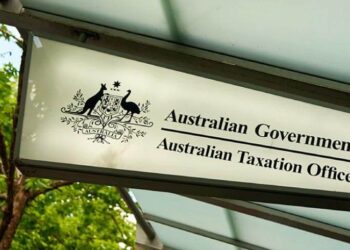In the Federal Budget handed down Tuesday night, the government stated that it had reviewed with a number legacy tax and superannuation measures that were announced but not legislated by the previous government.
The government stated that while it intends to implement the proposal to relax the residency requirements for SMSFs, it will defer the start date for the measure.
The measure will now commence the income year commencing on or after the date of Royal assent of the enabling legislation.
RSM Australia national director, superannuation and SMSF services Katie Timms said while it would have been good to have the measure backdated to July 2022, its a positive sign that the proposed changes to the residency requirements are still on the government’s radar.
“The residency requirements can be very tricky for a lot of SMSFs so relaxing those requirements a bit just makes sense,” said Ms Timms.
Ms Timms said most professionals in the SMSF industry will also be thrilled to see that Labor has ruled out implementing the previously proposed change to audit requirements for SMSFs.
The proposal to implement a three-year audit cycle for certain SMSFs received considerable backlash from the SMSF industry, with auditors flagging concerns about the measure increasing risks for both trustees and professionals.
SMSF Association chief executive John Maroney agreed that it was pleasing to see that the three year audits policy had been officially axed.
“It was a controversial measure that contained a range of complexities and concerns for the sector,” said Mr Maroney.
“The annual audit process plays a pivotal role in maintaining the integrity of the sector.”
Outstanding measures missing from the Budget
The budget was however silent on the two-year amnesty for legacy pension conversions and modifying the non-arm’s income provisions with new principles.
“An amnesty period to allow SMSF members stuck in legacy pensions to convert to more conventional style pension products would be a significant reform,” said Mr Maroney.
There has been significant lobbying by the major accounting bodies and SMSF Association in relation to the non-arm’s length income provisions, with the associations warning that the current provisions will have far-reaching and unjustifiable consequences for superannuation.
In the lead up to the Budget, CA ANZ superannuation leader Tony Negline said the current rules around non-arm’s length income meant those who had made small errors in judgement and unintentional mistakes would be severely impacted.
“This very high tax rate could apply to compulsory Superannuation Guarantee employer contributions, which means these contributions will be taxed at 45 per cent rather than 15 per cent,” he said.
“We have been asking the government to clarify how it plans to ensure the NALI rules remain an anti-avoidance measure and not a penalty that could apply to everyone.”
Additional funding boost for Director IDs
The government also stated it would provide additional funding of of $166.2 million over four years from 2022–23 to help deliver the Modernising Business Registers program that will consolidate over 30 business registers onto a modernised registry platform.
The funding includes $80 million for the ATO and ASIC to continue the design and delivery of the modernised registry platform.
It also includes $86.2 million over 4 years from 2022–23 ($119.5 million over 6 years from 2022–23 and $15.9 million per year ongoing) for ATO and ASIC to operate and regulate the Director Identification Numbers regime, and maintain ASIC’s registry systems.
Ms Timms said many in the industry would have also liked to have seen an extension to the deadline for directors to apply, with ATO data last week indicating that only a million directors have applied out the estimated 2.5 million that need to apply.
“Given some of the difficulties around director IDs, particularly for older SMSF clients, we were hoping for some more time to get clients through rather than just more money in the system,” she said.
Investment in affordable housing by large super funds
The government has also announced a new national Housing Accord between between governments, investors and industry which Treasurer Jim Chalmers said will help build affordable homes and tackle Australia’s housing crisis.
The Accord will aim to build one million new, well located homes over five years from 2024.
Some of the APRA-regulated super funds and the FPA have welcomed the announcement.
Rest chief executive Vicki Doyle noted that Rest has been an investor in institutional residential developments overseas since 2014.
“In our experience, these assets have been valuable in enhancing the financial interests of our members,” said Ms Doyle.
“We are interested in exploring how the development of domestic residential investment opportunities at scale can provide similar value to our 1.9 million members.
“We represent more than one million Australians under the age of 35 who are decades from retirement, and more than one million women. We are always open to opportunities that can provide them with long-term financial benefits.”
ASFA chief executive Dr Martin Fahy said super funds have been active participants in investing in affordable and essential worker housing as well as participating in community-based impact investment opportunities in the social housing space.
“ASFA has long advocated for policy settings that will allow funds to deploy capital to drive innovation and productivity including through housing, energy transition and digital infrastructure, while delivering in the best financial interest of members,” stated Dr Fahy.
“[This] announcement will give superannuation trustees greater certainty with respect to the inclusion of these types of investments in their strategic asset allocations.
FPA chief executive Sarah Abood stated that home ownership is one of the cornerstones of retirement planning and one of the best lead indicators of a comfortable retirement.
“Measures such as the National Housing Accord, the Regional First Home Buyer Scheme, and steps to target homelessness and improve crisis housing, as well as reducing the age for people to make downsizer contributions to their superannuation (as previously announced), should support more security in retirement for Australians,” said Mr Abood.
Review of managed investment schemes
Ms Abood also welcomed the government’s commitment to an urgent review of the regulatory framework for managed investment schemes.
Mr Negline noted that the last big review of managed investment schemes was back in the 90s.
“There are some big changes on foot. Now that [review] could be looking at all sorts of things. It could be looking at the structure or at the
taxation. CGT in relation to MISs can get pretty complicated,” said Mr Negline.
“We’ll have to see, we don’t know anything about the terms of reference at this stage.”


